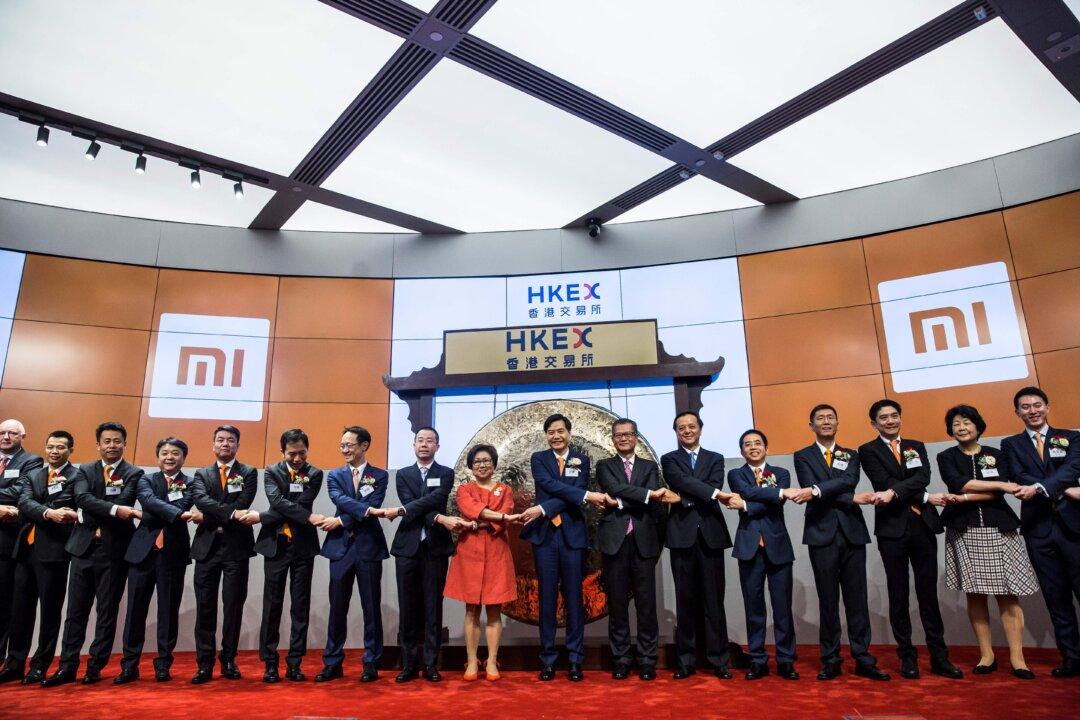Shares of China’s second-largest cellphone maker, Xiaomi Group, have dropped almost 40 percent in value since the company was blacklisted by the U.S. government in January, and its market value has now evaporated by more than HK$300 billion ($38.64 billion).
Following the first open day on the Hong Kong Stock Exchange in 2021, Xiaomi’s share price reached HK$35.9 ($4.62) on Jan. 5, pushing its market value up to over HK$900 billion ($115.93 billion), according to Yahoo Finance.




